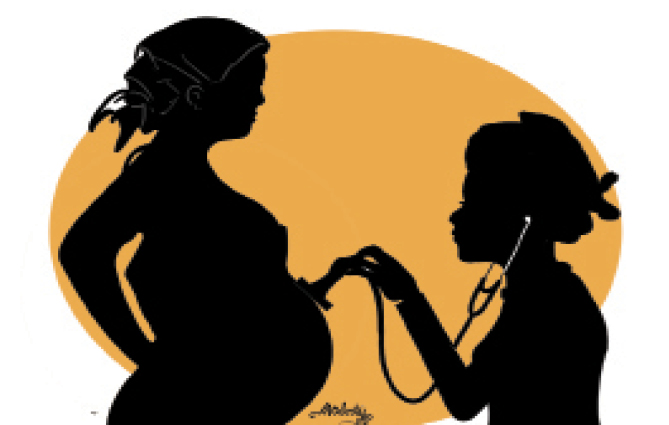Do’s and don’ts during pregnancy
By Maijiddah H. Ndanusa
Ladi, 34, did not attend ante-natal during her first pregnancy. She was rushed to the hospital when she went into labour.
However, she lost the baby and discovered that there were complications that would have been identified if she had antenatal care services at the hospital.
According to a community health nurse, Khadijat Lukman Dolapo, antenatal care, also known as prenatal care, is the preventive health care service given to women during pregnancy to ensure the safety of the mother and baby.
She said antenatal care is very important because it helps reduce the risk of complications for mother and baby during the pregnancy.
She said, “Examples of early pregnancy complications are hypertension in pregnancy, also called preeclampsia, and gestational diabetes. These conditions can be detected when women attend antenatal care services.
“Pre-eclampsia can lead to severe complications like miscarriages. It can also lead to the death of the mother and baby.
“That is why it is very important to register for antenatal at the hospital so that these conditions can be monitored and prevented, or treated if you have them.
“When you start going for antenatal care, the medical professionals do ultra-sound and tests like urine test, blood test, physical examination of the tommy, and the fetal heartbeat and movement.
“This is to know if your baby is breathing well – if your baby’s heartbeat is well or if there is any irregularity with the heartbeat or any other irregularity with the baby.
“Attending antenatal will help in ensuring that all these are monitored, detected early and treated.”
She said there are also routine drugs that pregnant women take, adding “and you can’t know them if you don’t go for antenatal care.”
She said antenatal care also teaches women about their daily lifestyle as pregnant women; such as what they should eat and not eat.
How husbands, other family members can help pregnant women stay healthy
The community health nurse said it is advisable for women to go for their first antenatal care with their husbands because they are in a better position to take care of the women and their babies.
She said it is also important so that both of them can undergo tests.
“Also, if there is any complication, as the woman is listening to instructions, her husband is also there. Once a woman is pregnant, she needs maximum support and her husband is the person that will help her with this more than any other family member.
“The husband is supposed to know the diet his pregnant wife can take and the appropriate lifestyle.
“There are fruits pregnant women should take and not take during pregnancy. And things she should do and not do. The husband will know more about this if he goes to antenatal clinics with his wife,” Dolapo said.
Do’s and Don’ts in pregnancy
The expert said examples of fruits a pregnant woman can take are apples, oranges, watermelon, while those she shouldn’t take are grapes and pineapples.
“You can’t take pineapple when you are pregnant because there are enzymes that can cause complications, and also cause contractions in pregnant women. It can also lead to miscarriage.
“A pregnant woman also needs a lot of iron in her food. She needs a lot of vitamin A, and folic acid and she can get these normally through food and also through drugs. She also needs minerals and carbohydrates among others.
“So a husband who is supportive and knows about all these can help in providing them in the house to ensure his wife gets the requisite nutrition. He will also ensure his pregnant wife is healthy, eats well, and sleeps well.
“Other members of the family can also help by reducing the workload the pregnant woman is subjected to.
“A pregnant woman that is entering her second semester should not be doing the heavy work that she used to do. So when the husband is not around, relations can help her with them. Thus relieving her of stress and fatigue and ensuring she lives a good and healthy lifestyle,” Dolapo advised.
Hygiene
Dolapo said hygiene is very important in pregnancy in other to reduce the rate of infection.
“We have seen situations where poor hygiene led to miscarriage. So a pregnant woman should take a bath two times a day because pregnant women sweat a lot.
“Normally, women are supposed to bathe twice a day, in the morning and evening because bacteria tends to breed in the sweat that comes out from women,” she added.
She said pregnant women should also take care of their reproductive organs and avoid putting physical things into the vagina or washing it with soap.
“The vagina is a self-cleaning organ and doesn’t need anything to clean it. Warm water is good to wash the vagina, you don’t need to put soap or perfume,” she advised.

 Join Daily Trust WhatsApp Community For Quick Access To News and Happenings Around You.
Join Daily Trust WhatsApp Community For Quick Access To News and Happenings Around You.


